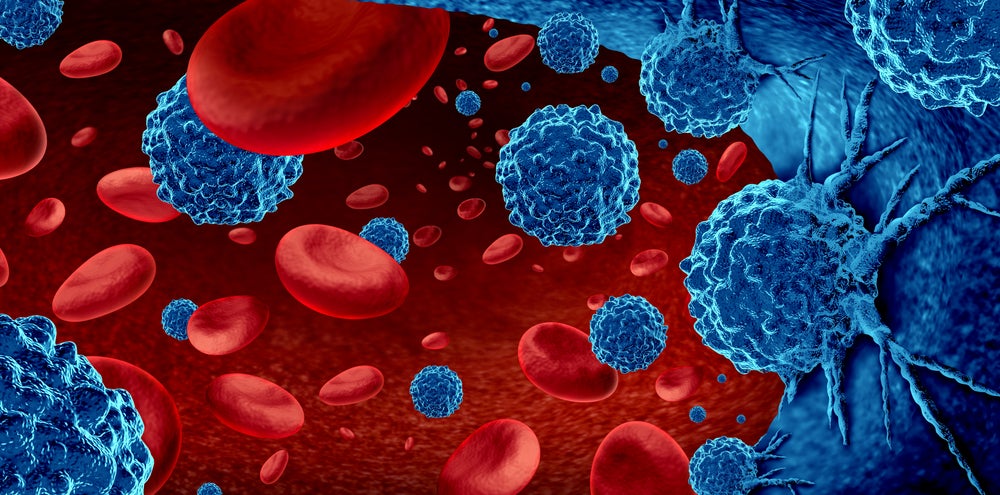On 1 December 2023, the US Food and Drug Administration (FDA) granted accelerated approval to Eli Lilly’s Jaypirca (pirtobrutinib) for the treatment of patients with chronic lymphocytic leukaemia (CLL) and small lymphocytic lymphoma (SLL).
This was for those who had previously received a Bruton tyrosine kinase (BTK) inhibitor – AbbVie’s Imbruvica (ibrutinib), AstraZeneca‘s Calquence (acalabrutinib), or BeiGene’s Brukinsa (zanubrutinib) – and a B-cell lymphoma 2 (BCL-2) inhibitor, AbbVie/Roche’s Venclexta (venetoclax).
The BTK and BCL-2 genes’ expression is strongly associated with disease progression and resistance to chemotherapy.
CLL and SLL are characterised by the accumulation of abnormal lymphocytes.
GlobalData, a leading data and analytics company, estimates the number of diagnosed prevalent cases of CLL and SLL in the seven major markets (7MM: US, France, Germany, Italy, Spain, the UK, and Japan) to reach more than 478,000 by 2032, underscoring an urgent need for innovative treatments.
Jaypirca, a highly selective BTK inhibitor, has shown promise in addressing this need. Jaypirca binds non-covalently to BTK and suppresses its activity.

US Tariffs are shifting - will you react or anticipate?
Don’t let policy changes catch you off guard. Stay proactive with real-time data and expert analysis.
By GlobalDataUnlike other BTK inhibitors that bind covalently to the active site of BTK, Jaypirca’s inhibitory efficacy is maintained even in the presence of mutations in this region such as Cys481.
The FDA’s accelerated approval was based on a pivotal Phase I/II trial (BRUIN, NCT03740529) involving patients with relapsed or refractory CLL and SLL.
The trial’s primary endpoints included overall response rate (ORR) and duration of response (DOR).
Jaypirca achieved an ORR of 72% in previously treated patients, all of which were partial responses, with a median DOR of 12.2 months, indicating sustained efficacy.
According to GlobalData’s patient-based forecast, Jaypirca will generate 7MM sales of almost $2.5bn by 2030.
Looking ahead, Jaypirca’s role is set to expand. There are now ten ongoing Phase I-III trials examining its usage as both first-line and subsequent-line therapy for blood cancers.
Future studies are expected to explore its application as a maintenance therapy following CAR-T-cell therapy, in CAR-T failures, as a bridging therapy before CAR-T, and in combination with other targeted and immunotherapies, including bispecific or trispecific antibodies.
Although the toxicity of different BTK inhibitors has not been compared, Jaypirca’s cardiac side effects such as atrial fibrillation are relatively minimal, suggesting that this novel medication will be well-tolerated.
Jaypirca is currently being evaluated in several ongoing registrational clinical trials as a maintenance therapy for CLL and SLL.
In addition, Jaypirca’s entry into the third-line treatment landscape for CLL and SLL presents a formidable challenge to existing BTK therapies such as AbbVie’s Imbruvica and AstraZeneca’s Calquence.
Its unique non-covalent BTK inhibition mechanism and superior safety profile, especially in overcoming BTK inhibitor resistance, positions Jaypirca not just as an alternative, but potentially as a preferred choice for patients who have exhausted other BTK inhibitors.






